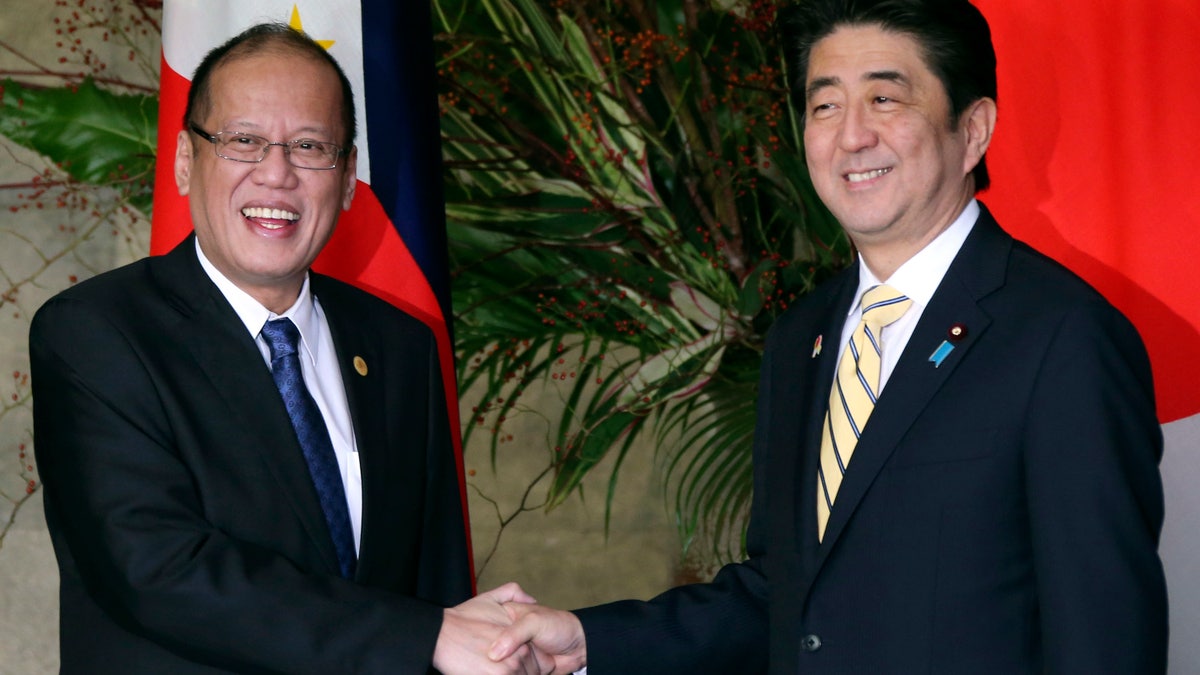
Japanese Prime Minister Shinzo Abe, right, shakes hands with Philippine President Benigno Aquino III prior to their working lunch at Abe's official residence in Tokyo, Friday, Dec. 13, 2013. Aquino is in Tokyo to attend meetings between Japanese and ASEAN leaders. (AP Photo/Koji Sasahara, Pool) (The Associated Press)
TOKYO – Southeast Asian nations welcome Japan's efforts to nurture closer security cooperation, given China's growing assertiveness, though they hope the two powers will mend their frayed ties, Indonesian President Susilo Bambang Yudhoyono said Friday.
"It must be said that good relations between China and Japan are critical to the future of our region," Yudhoyono told a gathering on the sidelines of a summit marking 40 years of ties between Japan and the Association of Southeast Asian nations.
Yudhoyono urged all involved to build more trust, throughout both northeastern Asia, where China and Japan are bickering over islands claimed by both in the East China Sea, and in the South China Sea, where several countries face disputes with China.
Although Indonesia is not involved, it "is deeply concerned at the prospect of those erupting into open conflict," Yudhoyono said.
"We also need to continue to reduce tensions and manage flashpoints," he said.
Nurturing closer ties with Southeast Asia has been one of Prime Minister Shinzo Abe's top foreign policy priorities since he took office nearly a year ago. In a year of whirlwind diplomacy that had him crisscrossing the globe, he visited all 10 ASEAN countries at least once.
China's increasingly assertive stance in the region has advanced that courtship, while soothing any backlash across Southeast Asia against Japan's own rising military profile.
"China is challenging the balance of power," said Ding Xueliang, a China expert at the Hong Kong University of Science and Technology. "They could do something that might even be a game changer," he said.
Like China and the Koreas, much of Southeast Asia also suffered Japanese occupation during World War II. Until recently many remained openly wary over the potential for a resurgence of Japanese militarism.
Even Yudhoyono's vigorous endorsement of Japan's pro-active stance was tempered with caution.
"In our view, it is important that Japan's larger security role is pursued gradually, in a transparent manner and in ways that would strengthen international security, regional order and enhance confidence building," he said.
___
Associated Press writers Jim Gomez in Manila and Miki Toda in Tokyo contributed to this report.




















